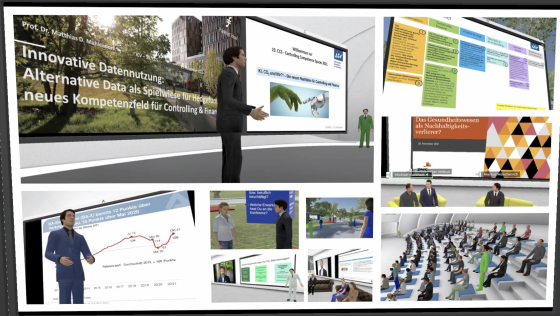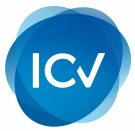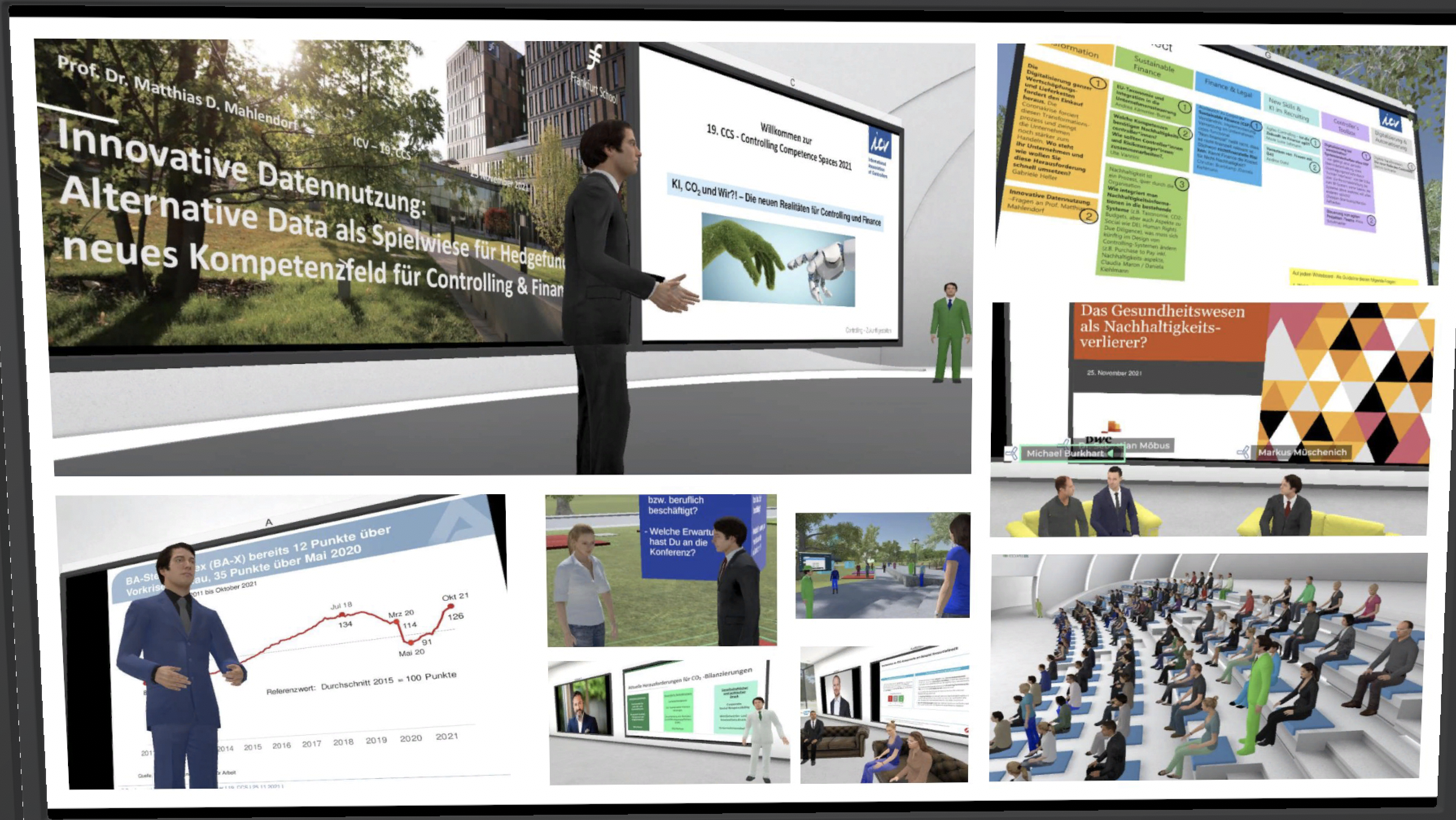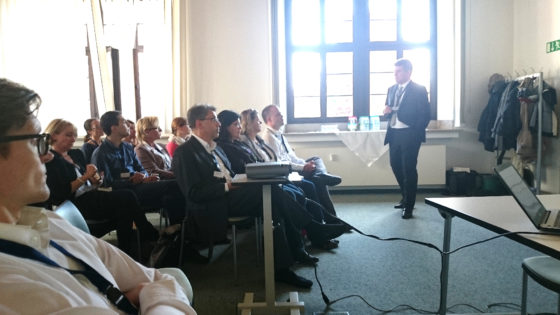 Der 25. November 2021 war als Online-Konferenztag der 19. CCS Controlling Competence in den SPACES prall gefüllt. Mit vier Keynotes, 18 Vorträgen inklusive Podiumsdiskussionen und Workshops sowie drei Netzwerkformaten, bei denen es um Fachinhalte (Themen Connect) und die Teilnehmenden selbst ging (Speed Connect, Open Connect). Highlight für viele Besucher war die Keynote „Alternative Data“, die neue und erstaunliche Bilder dessen zeichnete, was schon heute im Wirtschaftsleben gang und gäbe ist – und was am Ende auch Auswirkungen auf das Berufsbild des Controllers haben wird, genauso wie der bereits verfügbare hohe Grad an Automatisierung im Controlling.
Der 25. November 2021 war als Online-Konferenztag der 19. CCS Controlling Competence in den SPACES prall gefüllt. Mit vier Keynotes, 18 Vorträgen inklusive Podiumsdiskussionen und Workshops sowie drei Netzwerkformaten, bei denen es um Fachinhalte (Themen Connect) und die Teilnehmenden selbst ging (Speed Connect, Open Connect). Highlight für viele Besucher war die Keynote „Alternative Data“, die neue und erstaunliche Bilder dessen zeichnete, was schon heute im Wirtschaftsleben gang und gäbe ist – und was am Ende auch Auswirkungen auf das Berufsbild des Controllers haben wird, genauso wie der bereits verfügbare hohe Grad an Automatisierung im Controlling.
Prof. Dr. Matthias Mahlendorf lenkte den Blick auf die aktuellen Erhebungs-, Auswertungs- und Erkenntnismöglichkeiten von externen Daten wie Kreditkartenabrechnungen, Satellitendaten, E-Mail-Anhängen, Inhalten von Social Apps und Nutzung des Internets. Anhand dieser Daten werten Unternehmen schon heute Verhalten und damit Intentionen und Strategien ihrer Kunden und ihrer Wettbewerber gleichermaßen aus. So könne etwa anhand der Schaltung von Stellenanzeigen der Kapazitätsaufbau und damit die Strategie eines Unternehmens mitverfolgt werden. Die Analyse der verkauften Produkte und der damit verbundenen Preise wiederum lasse Rückschlüsse auf die Produktmix-Strategie zu. Twitter-Nachrichten beeinflussen Aktienkurse innerhalb kürzester Zeit maßgeblich. Auch die zunehmende Verwendung von Algorithmen, die sich gegenseitig beeinflussen, sorge bereits für Wettbewerbsverzerrungen und die Gefahr von Kartellpreisen. Mahlendorf nannte als Beispiel die Nutzung von Preisalgorithmen, „die sich gegenseitig hochpushen“, durch Tankstellenbetreiber.
Neue Perspektiven für Controller: Es gibt viel zu tun!
Echtzeitüberwachung ist laut dem Professor an der Frankfurt School of Finance & Management auch bereits via Satellit weltweit möglich – und werde als solche auch genutzt, etwa um das Produktionsgelände des Wettbewerbers auszuspähen: Wie viele Autos stehen auf den Parkplätzen, wie viele Fabrikmitarbeiter sind dort unterwegs – und zu welchen Zeiten? Die Antworten lassen unter anderem darauf schließen, wie hoch die Auslastung im Werk ist und ob mit einer Vier- oder Fünftage-Woche gearbeitet wird. Auch der Mensch rückt zunehmend in den Fokus der Beobachtung. So werde etwa bei öffentlichen Auftritten, vor allem bei Gründern, der Klang der Stimme des CEOs oder CFOs analysiert, um zu erkennen, ob dieser zu Depressionen neige. Die daraus resultierenden Vorhersagen für die Performance eines Unternehmens können ausschlaggebend für Investitionsentscheidungen Externer sein.
Dass die geschilderten Überwachungsoptionen auch in Europa auf dem Vormarsch und damit externe Daten zunehmend verfügbar seien, nannte Matthias Mahlendorf „schockierend, aber auch interessant“, denn: „Das eröffnet auch neue Perspektiven für den Controller. Es gibt viel zu tun!“.
75% der Aufgaben im aktuellen Controller-Berufsbild sind automatisierbar
Diesen Ansatz bekräftigte auch Dr. Roland Deinzer, Leiter des strategischen Controllings der Bundesagentur für Arbeit, bei der Auftakt-Keynote zur 19. CCS. Schon heute könne der Beruf des Controllers zu 75% durch BI, digitales Dokumentenmanagement, ERP-Systeme, Predictive Analytics und RPA automatisiert werden. Umso wichtiger sei deshalb auch für den Controller lebenslanges Lernen. Man müsse sich innerhalb des Berufsbilds entscheiden, wo man künftig seinen Schwerpunkt setzen wolle: auf der IT-Seite oder in der Beratung. „Den stuck-in-the-middle-Controller wird es nicht mehr geben“, so Deinzers Vorhersage.
Persönlichen Schwerpunkt setzen bei der CCS: 18 Vorträge in drei Sessions stehen zur Wahl
Der Mittag der CCS stand ganz im Zeichen der Sessions. In je drei Zeitslots konnten sich die Besucher jeweils einem der sechs Sessionthemen widmen. Auf der Agenda standen Digitale Transformation, Sustainable Finance, Finance & Legal, New Skills & KI im Recruiting, Controller’s Toolbox sowie Digitalisierung & Automatisierung. Entsprechend groß war die Bandbreite bei den Vortragsinhalten. Servitization im Controlling, EU Taxonomy, das neue Lieferkettensorgfaltspflichtengesetz, individuelle Personalentwicklung mithilfe von KI, Integrierte Planung & Steuerung, SAP S4H Business Transformation, das Gesundheitswesen als Nachhaltigkeitsverlierer, ESG, vollintegrierte Planung, CO2 als neue Währung, EU-Whistleblower-Richtlinie sowie Risikomanagement wurden von den Rednerinnen und Rednern vorgestellt und im Nachgang auch mit den Zuhörenden diskutiert. „Das sind so viele interessante Themen, ich würde am liebsten bei allen dabei sein!“, war von Teilnehmenden immer wieder zu hören.
KI in Controlling-Projekten und im Zusammenspiel mit dem Menschen
In den beiden Keynotes zum Abschluss der 19. CCS 2021 war Künstliche Intelligenz der rote Faden. Viktoria Winkler, Managerin BI der Braincourt GmbH, fokussierte das Gelingen von KI-zentrischen Controlling-Projekten. Sie erläuterte auf der Basis ihrer Praxiserfahrungen unter anderem Erfolgsfaktoren, Komplexitätstreiber und wie die Aufgaben zwischen künstlicher und menschlicher Intelligenz idealerweise verteilt werden. Den Chancen, Grenzen und moralischen Problemen von KI im Zusammenspiel mit dem Menschen ging Dr. Tobias Holischka auf den Grund. Der Akademische Rat der Katholischen Universität Eichstätt-Ingolstadt nahm die Teilnehmenden dazu mit auf eine Reise tief hinein in die Grundlagen von KI – von der Definition über den technischen Hintergrund bis hin zu den Möglichkeiten und Problemen in der Anwendung. Sein Fazit: „Technik allein kann keine ethischen Problem lösen. KI versteht nicht, was sie tut, darum darf sie in sensiblen Bereichen nicht allein entscheiden. Dazu wird es immer den Menschen brauchen“.
Inhalte und Format gefallen – die Jubiläums-CCS kann kommen!
Und was sagen die Besucherinnen und Besucher über die 19. Ausgabe der ICV-Herbsttagung, die ihre Wurzeln als regionale Präsenzveranstaltung des ICV in Stuttgart hat, nunmehr aber fest Fuß fasst in der Online-Welt der Avatare? Ein Blick in die Feedback-Bögen der 19. CCS zeigt, dass Format und Inhalte gut ankommen: „Die Veranstaltung fand ich super, danke dafür!“; „Tolles Format, hat Spaß gemacht“; „Eine tolle Atmosphäre wurde durch die Organisatoren geschaffen – tolle Arbeit!“; „Spannende und aktuelle Themen, vorgetragen von interessanten und erfahrenen Persönlichkeiten“; „Sehr angenehme Gespräche auf Augenhöhe – ein toller Expertenaustausch“. Mit diesen Rückmeldungen geht das CCS Organisationsteam gerne ins neue Jahr und beginnt mit den Planungen für die Jubiläumsausgabe, der 20. CCS Controlling Competence SPACES, am 24. November 2022.
 November 25, 2021 was the date of the online conference 19th CCS Controlling Competence in the SPACES. With four keynotes, 18 lectures including panel discussions and workshops as well as three network formats that dealt with expert know-how (Connect topics) and the participants themselves (Speed Connect, Open Connect). The highlight for many visitors was the keynote “Alternative Data”, which drew new and astonishing pictures of what is already commonplace in business today – and what will ultimately have an impact on the job description of the controller, as well as the already available high degree of automation in controlling.
November 25, 2021 was the date of the online conference 19th CCS Controlling Competence in the SPACES. With four keynotes, 18 lectures including panel discussions and workshops as well as three network formats that dealt with expert know-how (Connect topics) and the participants themselves (Speed Connect, Open Connect). The highlight for many visitors was the keynote “Alternative Data”, which drew new and astonishing pictures of what is already commonplace in business today – and what will ultimately have an impact on the job description of the controller, as well as the already available high degree of automation in controlling.
Prof. Dr. Matthias Mahlendorf drew attention to the current collection, evaluation and knowledge options for external data such as credit card statements, satellite data, e-mail attachments, content from social apps and use of the Internet. On the basis of this data, companies already evaluate the behavior and thus the intentions and strategies of their customers and their competitors alike. For example, by placing job advertisements, the capacity building and thus the strategy of a company can be followed. The analysis of the products sold and the associated prices, in turn, allows conclusions to be drawn about the product mix strategy. Twitter messages have a significant impact on share prices within a very short period of time. The increasing use of algorithms that influence each other is already causing distortion of competition and the risk of cartel prices. As an example Mahlendorf named the use of price algorithms that “push each other up” by petrol station operators.
New perspectives for controllers: there is a lot to do!
According to the professor at the Frankfurt School of Finance & Management, real-time monitoring is already possible worldwide via satellite – and is also used as such, for example to spy on the competitor’s production site: How many cars are in the parking lots, how many factory employees are there – and at what times? The answers indicate, among other things, how busy the plant is and whether a four- or five-day week is used. People are also increasingly becoming the focus of observation. For example, when making public appearances, especially when it comes to founders, the sound of the CEO’s or CFO’s voice is analyzed in order to determine whether he or she is prone to depression. The resulting predictions for the performance of a company can be decisive for investment decisions by external parties.
Matthias Mahlendorf called the fact that the described monitoring options are also on the advance in Europe and therefore external data are more and more available, “shocking, but also interesting”, because: “This also opens up new perspectives for the controller. There is much to do!”.
75% of the tasks in the current controller job can be automated
Dr. Roland Deinzer, Head of Strategic Controlling at the Federal Employment Agency [German Bundesagentur für Arbeit], focused on this statement at the opening keynote of the 19th CCS. Even today, the job of controller can be automated by 75% thanks to BI, digital document management, ERP systems, predictive analytics and RPA. Lifelong learning is therefore all the more important for the controller. You have to decide within the job profile where you want to focus in the future: on the IT side or in consulting. “The stuck-in-the-middle controller will no longer exist,” said Deinzer’s prediction.
Set personal focus at the CCS: there was a choice of 18 lectures in three sessions
The lunchtime of the CCS was all about the sessions. In three time slots each, visitors could devote themselves to one of the six session topics. The agenda included digital transformation, sustainable finance, finance & legal, new skills & AI in recruiting, controller’s toolbox and digitization & automation. The range of the lecture content was correspondingly large. Servitization in controlling, EU taxonomy, the new supply chain due diligence law, individual personnel development with the help of AI, integrated planning & management, SAP S4H business transformation, health care as a sustainability loser, ESG, fully integrated planning, CO2 as the new currency, EU whistleblower directive and risk management presented by the speakers and discussed with the audience afterwards. “There are so many interesting topics, I would like to be part of them all!” was the response from participants over and over again.
AI in controlling projects and in interaction with people
Artificial intelligence was the central theme in the two keynotes at the end of the 19th CCS 2021. Viktoria Winkler, BI manager at Braincourt GmbH, focused on the success of AI-centric controlling projects. On the basis of her practical experience, she explained, among other things, success factors, complexity drivers and how the tasks between artificial and human intelligence are ideally distributed. Dr. Tobias Holischka got to the bottom of the opportunities, limits and moral problems of AI in interaction with humans. The Academic Council of the Catholic University of Eichstätt-Ingolstadt took the participants on a journey deep into the basics of AI – from the definition to the technical background to the possibilities and problems in use. His conclusion: “Technology alone cannot solve any ethical problem. AI does not understand what it is doing, which is why it cannot make decisions on its own in sensitive areas. People will always be needed for this”.
The content and format praised – the anniversary CCS can come!
And what do the visitors say about the 19th edition of the ICV autumn conference, which has its roots as a regional ICV event in Stuttgart, but is now firmly gaining a foothold in the online world of avatars? A look at the feedback forms for the 19th CCS shows that the format and content are well received: “I thought the event was great, thanks for it!”; “Great format, it was fun”; “The organizers created a great atmosphere – great work!”; “Exciting and current topics, presented by interesting and experienced personalities”; “Very pleasant discussions at eye level – a great exchange of experts”. With this feedback, the CCS Organization Team is looking forward to the new year and is starting planning for the anniversary edition, the 20th CCS Controlling Competence SPACES, on November 24, 2022.



